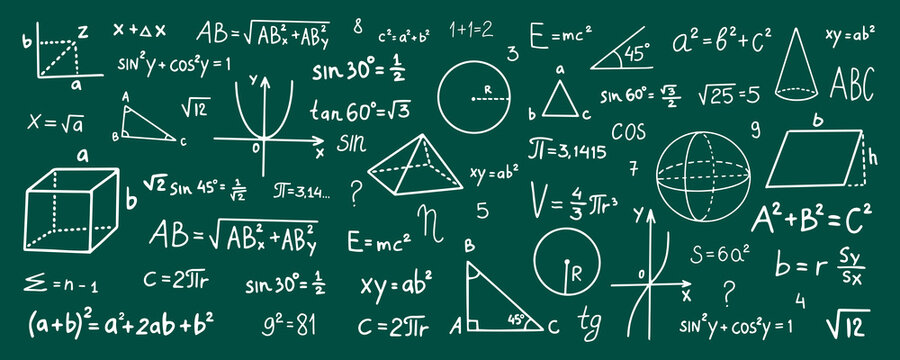
Course credit 3
Hours per week 5
Total : 75Marks [ Internal 15 + External 60 ]
Aim of the Course:
· This course comprises the study of vector valued function and complex numbers.
· The concept of the gradient of a scalar function , curl, and divergence of a vector field are discussed .
· The study of analytic functions and their behavior with respect to the complex calculus is the main focus
· To understand the difference between the differentiability and analyticity of a complex function and the necessary and sufficient conditions for analyticity.
Objectives of the Course:
● To learn the idea of limit ,continuity and derivatives of vector -valued function.
● Use partial derivatives to find the tangent plane and normal line to a point on a surface.
● Understand the properties and applications of the gradient of a function .
● Apply double integral and triple integral to find the mass of a lamina, center of mass, etc.
● Evaluate curl and divergence of a vector field.
● Understand the definition and evaluation of complex integral.
● Understand Cauchy ‘s integral formula and apply it to derivative Liouville’s theorem and the fundamental theorem of Algebra.
● Understand the line integral, surface integral and triple integral.
Module – I (21 hrs)
: Vector Functions - Vector Valued Functions, Limits, Continuity, and Derivatives, Geometric Interpretation of r′(t), Higher Order Derivatives, Integrals of Vector Functions, Length of a Space Curve, Arc Length as a Parameter
: Motion on a Curve - Velocity and Acceleration, Centripetal Acceleration, Curvilinear Motion in the Plane
: Curvature and components of Acceleration - definition, Curvature of a Circle, Tangential and Normal Components of Acceleration, The Binormal, Radius of Curvature
: Partial Derivatives - Functions of Two Variables, Level Curves, Level Surfaces, Higher Order and Mixed Derivatives, Functions of Three or More Variables, Chain Rule, Generalizations
: Directional Derivative - The Gradient of a Function, A Generalization of Partial Differentia- tion, Method for Computing the Directional Derivative, Functions of Three Variables, Maximum Value of the Directional Derivative, Gradient Points in Direction of Most Rapid Increase of f
: Tangent planes and Normal Lines - Geometric Interpretation of the Gradient, Tangent Plane, Surfaces Given by z = f (x, y), Normal Line
Module – II (24 hrs
: Curl and Divergence - Vector Fields, definition of curl and divergence, Physical Interpreta- tions
: Line Integrals - definition of smooth closed and simple closed curves, Line Integrals in the Plane, Method of Evaluation - curve as explicit function and curve given parametrically, Line Integrals in Space, Method of Evaluation, Work, Circulation
: Independence of Path - Conservative Vector Fields, Path Independence, A Fundamental The- orem, definition of connected, simply connected and multiconnected regions, Integrals Around Closed Paths, Test for a Conservative Field, Conservative Vector Fields in 3-Space, Conservation of Energy
: Double Integral - Integrability, Area, Volume, Properties, Regions of Type I and II, Iterated Integrals, Evaluation of Double Integrals (Fubini theorem), Reversing the Order of Integration, Laminas with Variable Density-Center of Mass, Moments of Inertia, Radius of Gyration
: Double Integrals in Polar Coordinates - Polar Rectangles, Change of Variables: Rectan- gular to Polar Coordinates.
: Green’s Theorem - Line Integrals Along Simple Closed Curves, Green’s theorem in plane, Region with Holes
: Surface Integral - Surface Area, Differential of Surface Area, Surface Integral, Method of Evaluation, Projection of S into Other Planes, Mass of a Surface, Orientable Surfaces, Integrals of Vector Fields-Flux.
: Stokes’s Theorem - Vector Form of Green’s Theorem, Green’s Theorem in 3-Space Stoke’s Theorem, Physical Interpretation of Curl
Module – III (21 hrs)
: Triple Integral - definition, Evaluation by Iterated Integrals, Applications, Cylindrical Co- ordinates, Conversion of Cylindrical Coordinates to Rectangular Coordinates, Conversion of Rectangular Coordinates to Cylindrical Coordinates, Triple Integrals in Cylindrical Coordinates, Spherical Coordinates, Conversion of Spherical Coordinates to Rectangular and Cylindrical Co- ordinates, Conversion of Rectangular Coordinates to Spherical Coordinates, Triple Integrals in Spherical Coordinates
: Divergence Theorem - Another Vector Form of Green’s Theorem, divergence or Gauss’ the- orem, (proof omitted), Physical Interpretation of Divergence
: Change of Variable in Multiple Integral - Double Integrals, Triple Integrals
17.1: Complex Numbers - definition, arithmetic operations, conjugate, Geometric Interpretation 17.2: Powers and roots - Polar Form, Multiplication and Division, Integer Powers of z, DeMoivre’s
Formula, Roots
: Sets in the Complex Plane - neighbourhood, open sets, domain, region etc.
Functions of a Complex Variable - complex functions, Complex Functions as Flows, Limits and Continuity, Derivative, Analytic Functions-entire functions
: Cauchy Riemann Equation - A Necessary Condition for Analyticity, Criteria for analyticity, Harmonic Functions, Harmonic Conjugate Functions,
: Exponential and Logarithmic function - (Complex) Exponential Function, Properties, Pe- riodicity, (‘Circuits’ omitted), Complex Logarithm-principal value, properties, Analyticity
: Trigonometric and Hyperbolic functions - Trigonometric Functions, Hyperbolic Functions, Properties-Analyticity, periodicity, zeros etc.
Module – IV (14 hrs)
: Contour integral-definition, Method of Evaluation, Properties, ML inequality, Circulation and Net
: Cauchy-Goursat Theorem- Simply and Multiply Connected Domains, Cauchy’s Theorem, Cauchy-Goursat theorem, Cauchy-Goursat Theorem for Multiply Connected Do- mains.
: Independence of Path - Analyticity and path independence, fundamental theorem for contour integral, Existence of Antiderivative
: Cauchy’s Integral Formula - First Formula, Second Formula-C.I.F. for derivatives. Liou- ville’s Theorem, Fundamental Theorem of Algebra
References:
1. 1. Soo T Tan: Calculus Brooks/Cole, Cengage Learning(2010 )ISBN 0-534-46579-X
2. Gilbert Strang: Calculus Wellesley Cambridge Press(1991)ISBN: 0-9614088-2-0
3. Ron Larson. Bruce Edwards: Calculus(11/e) Cengage Learning(2018) ISBN: 978-1-337-27534-7
4. Robert A Adams & Christopher Essex : Calculus several Variable (7/e) Pearson Education Canada (2010) ISBN: 978-0-321-54929-7
5. Jerrold Marsden & Anthony Tromba : Vector Calculus (6/e) W. H. Freeman and Company ISBN: 978-1-4292-1508-4
6. Peter V O’Neil: Advanced Engineering Mathematics(7/e) Cengage Learning(2012)ISBN: 978- 1-111-42741-2
7. Erwin Kreyszig: Advanced Engineering Mathematics(10/e) John Wiley & Sons(2011) ISBN: 978-0-470-45836-5
8. Glyn James: Advanced Modern Engineering Mathematics(4/e) Pearson Education Limited(2011) ISBN: 978-0-273-71923-6
Text: Advanced Engineering Mathematics (6/e) : Dennis G Zill Jones & Bartlett Learning, LLC (2018)ISBN: 978-1-284-10590-2
- Teacher: Divya p FACULTY

